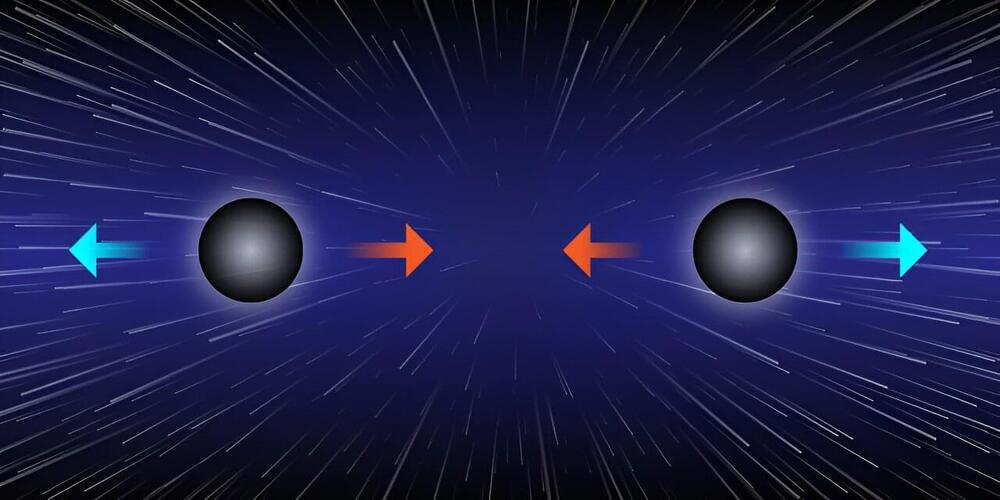Researchers from the University of Southampton, together with colleagues from the universities of Cambridge and Barcelona, have shown it’s theoretically possible for black holes to exist in perfectly balanced pairs—held in equilibrium by a cosmological force—mimicking a single black hole.
Black holes are massive astronomical objects that have such a strong gravitational pull that nothing, not even light, can escape. They are incredibly dense. A black hole could pack the mass of the Earth into a space the size of a pea.
Conventional theories about black holes, based on Einstein’s theory of General Relativity, typically explain how static or spinning black holes can exist on their own, isolated in space. Black holes in pairs would eventually be thwarted by gravity attracting and colliding them together.
